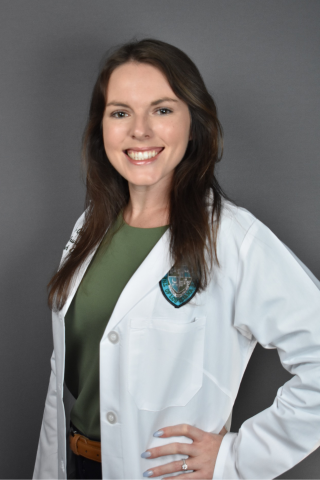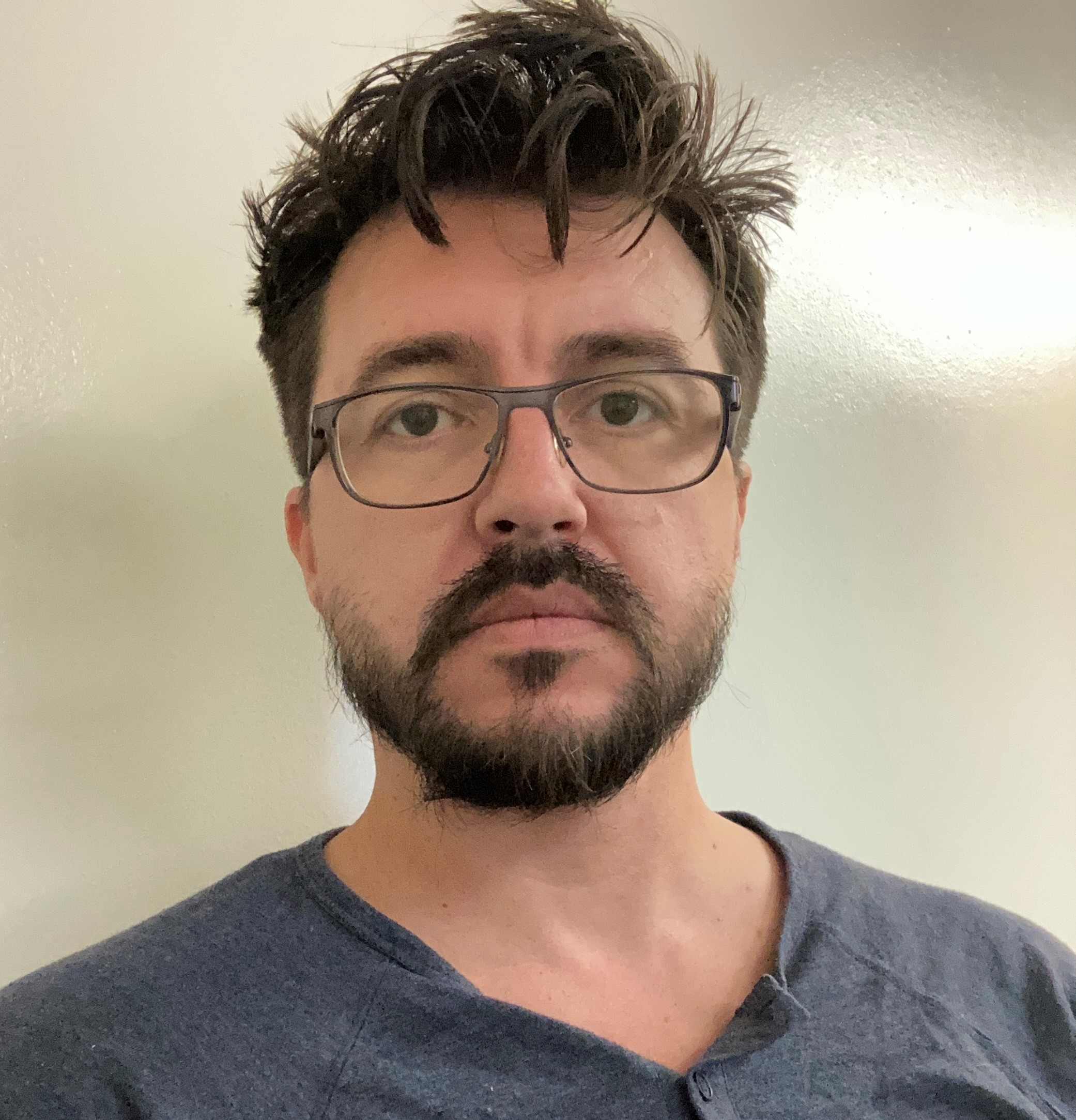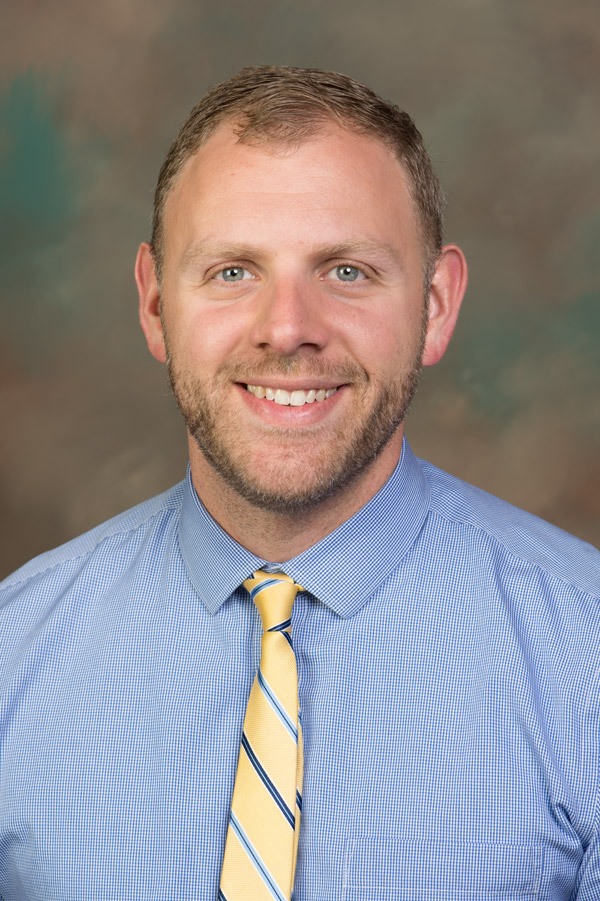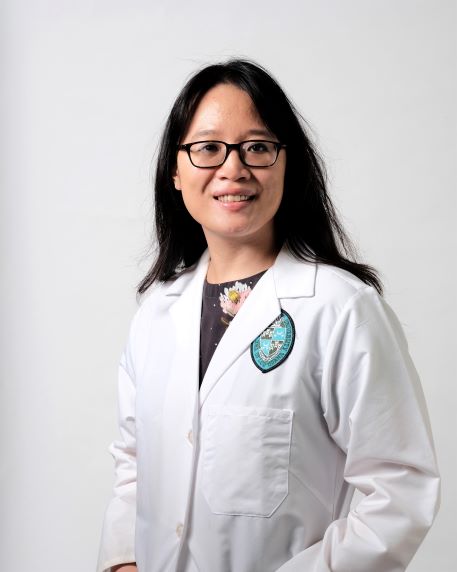Roadmap Scholars
The Professional Development Core intends to be the research home for junior faculty, post-doctoral fellows, and students who are preparing for a career as independent clinical/translational researchers. The core provides seminars, journal clubs, and two options for formal clinical research training. The Masters of Science in Clinical Research (MSCR) for junior faculty, is designed for the Roadmap Scholars (junior faculty selected competitively) who will pursue mentored research and didactic studies. The Roadmap Scholars together with their mentors, will design an individual Roadmap leading to independence that includes didactic courses in clinical research methodology, molecular medicine and genetics, health disparity, ethics, and their mentored research leading to a K award or equivalent. The Certificate in Clinical Research is 11 credits and is designed for the translational scientist who is either a post-doctoral fellow or a junior faculty member who can benefit from didactic training in the fundamentals of patient oriented clinical research. The Core will work closely with our COBREs to embed the MSCR Roadmap Scholars in the established COBRE Mentorship and Cores in order to optimize their training environment.
Roadmap Scholar Awardees
Highlighted achievements of our past scholars are displayed HERE.
14th Cohort: Funding Period July 2025 – June 2027
 Mentors: Dr. David Hughes, Dr. Sarah J. Borengasser, Dr. Amanda Staiano, and Dr. Shengping
Yang
Mentors: Dr. David Hughes, Dr. Sarah J. Borengasser, Dr. Amanda Staiano, and Dr. Shengping
Yang
"Predicting body composition, changes in BMI-z score, and clinical obesity risk in adolescents"
Dr. Waldrop is board certified in Obesity Medicine by the American Board of Obesity Medicine, in Pediatrics by the American Board of Pediatrics, and as a Physician Nutrition Specialist by the National Board of Physician Nutrition Specialists. She is currently a Physician Scientist in the Division of Clinical Sciences at Pennington Biomedical Research Center where she serves as a medical investigator on studies addressing pediatric obesity and the intergenerational transmission of obesity led by Dr. Amanda Staiano and Dr. Leanne Redman, respectively. She also serves as the primary investigator for several clinical trials evaluating the efficacy and safety of second-generation obesity medications in youth with obesity. She received a Bachelor of Arts in Natural Sciences from Johns Hopkins University, a Master of Public Health from the University of Alabama-Birmingham and a Doctor of Medicine from Wayne State University School of Medicine. She most recently completed a Pediatric Obesity and Clinical Nutrition Fellowship at the University of Colorado – Anschutz Medical Campus and was also supported by a National Institutes of Health Ruth L. Kirschstein National Research Service Award T32 Research Fellowship in Nutrition at CU – Anschutz. Her clinical interests include promoting the importance of pediatric nutritional status and treatments on short and long-term risk of communicable and non-communicable diseases as well as hospitalization and surgical outcomes. In addition, she use philosophies central to patient and family centered care and motivational interviewing to assist patients with making sustainable lifestyle modifications that have been shown to decrease risk of chronic disease. Her research interests include understanding the interactions of nutrition, maternal intrauterine exposures, and epigenetics on obesity risk in childhood. She aims to identify and assess the most optimal nutritional strategies for children at high risk of obesity and associated comorbidities in the context of their interaction with genetic predisposition, susceptibility conferred via intrauterine exposures, and effects on infant and child growth. Her interests lie in understanding how the totality of these exposures and potential predictors can be moderated by evidence-based nutritional interventions established earlier in life and sustained throughout the life course.
 Mentors: Dr. Bridgette M Collins-Burow, Dr. Victor J. Thannickal, and Dr. Matthew
E. Burow
Mentors: Dr. Bridgette M Collins-Burow, Dr. Victor J. Thannickal, and Dr. Matthew
E. Burow
"Targeting MAP3K19 signaling in novel patient-derived lung cancer models to address health disparities"
Dr. Barnes was originally trained as a chemical engineer in her undergraduate studies. After obtaining a PhD in Biomedical Sciences, she did postdoctoral research at the NCI and subsequently transitioned into technology transfer and alliance relations, fostering research partnerships with industry sponsors. This experience in translational projects reinvigorated the passion to pursue her research ideas, and she returned to academia as Research Faculty in the Tulane School of Medicine Department of Medicine. She is now developing research projects that leverage her expertise in tumor model development and characterization of kinase signaling networks in cancer progression, specifically mantle cell lymphoma, breast cancer, and lung cancer.
 Mentors: Dr. Charles Wood and Dr. John T. West
Mentors: Dr. Charles Wood and Dr. John T. West
"Multi-Scale Immune-System Modeling of Kaposi Sarcoma Treatment Outcomes"
Dr. Yalcin is currently a Staff Scientist in the Department of Interdisciplinary Oncology at LSUHSC. Her research focuses on immune responses to KSHV infection and its etiologic malignancies, such as Kaposi Sarcoma. The emphasis of her research is on discovering diagnostic or prognostic biomarkers and modeling mechanisms of variation in treatment responses using machine learning and systems biology approaches.
13th Cohort: Funding Period July 2024 – June 2026
 Mentors: Peter Katzmarzyk, PhD, Robert Newton, PhD, and Chindo Hicks, PhD
Mentors: Peter Katzmarzyk, PhD, Robert Newton, PhD, and Chindo Hicks, PhD
"Characterizing the Role of Genetic Ancestry in racial disparities in cardiometabolic diseases in Louisiana Populations using multiethnic Array"
Dr. Jennifer Caldwell is an Assistant Professor of Research at Pennington Biomedical University, and Director of the Public Health Genomics and Health Equity Laboratory. In 2021 she received her doctoral degree in Genetics and Human Genetics from the Howard University in Washington D.C. Her post-doctoral studies were done at Northwestern University School of Medicine in Chicago, Illinois where she focused on cardiovascular genetic epidemiology.
Dr. Caldwell is a human geneticist with an interest in combining genetic ancestry analysis and community engaged research strategies. Her research uses interdisciplinary research designs to observe genetic, environmental, and cultural factors that contribute to chronic health disparities.
Due to Dr. Caldwell’s overall interest in epigenetics, our study designs combine observing genetic traits, social determinants of health and behavioral risk factors that impact health disparities. She aims to answer questions about the role of how ancestry, culture, and behavior contribute to transgenerational disparities in ethnic minorities. Her goal at PBRC is to continue the framework of population and public health genomics research for Louisiana communities. In addition to her research goals, Dr. Caldwell is a LAUNCHED Fellow and Forge AHEAD Pilot Cohort 3 Fellow. As a Roadmap Scholar she will develop an African American genetic databased to observe cardio-metabolic, ancestral, social determinant outcomes in our diverse populations.
 Mentors: Qiang Shen, MD, PhD, Krzysztof Reiss, PhD, Shou-Ching Tang, MD, PhD, Jia
Zhou, PhD
Mentors: Qiang Shen, MD, PhD, Krzysztof Reiss, PhD, Shou-Ching Tang, MD, PhD, Jia
Zhou, PhD
"Niclosamide-derived novel anti-cancer agent as immune-modulator to synergize immune checkpoint blockade therapy for triple-negative breast cancer"
Dr. Zhipin Liang is an Assistant Professor-Research in the Department of Interdisciplinary Oncology at LSU Health Sciences Center in New Orleans (LSUHSC-NO). Dr. Liang received his Ph.D. in Biochemistry and Molecular Biology from Nankai University in China in 2014. Dr. Liang moved to The United States for his postdoctoral research training in Cancer Biology at the University of South Alabama and LSUHSC-NO, where he studied cancer prevention strategies and repurposing non-steroidal anti-inflammatory drugs (NSAIDs) for cancer immunotherapy. In 2019, Dr. Liang was promoted to Assistant Professor-Research and received a COBRE pilot grant focusing on immunotherapy for triple-negative breast cancer.
His current research is dedicated to developing innovative anti-cancer agents with a particular focus on small molecules derived from natural products and synthetic drugs for breast cancer prevention and treatment. As a Roadmap Scholar, Dr. Liang will study a Niclosamide derivative as an immune modulator to enhance immune checkpoint blockade therapy for triple-negative breast cancer.
 Mentors: Gregory Bix, MD, Demetrius M. Maraganore, MD
Mentors: Gregory Bix, MD, Demetrius M. Maraganore, MD
"The Mediterranean Diet to Promote Brain Health in Aging Rats"
Dr. Rebecca Solch-Ottaiano is a Research Instructor in the Department of Neurology at Tulane University School of Medicine in New Orleans, Louisiana. She obtained her Ph.D. in Nutritional Sciences from the University of Florida where her research focused on evaluating probiotics on stress-associated gastrointestinal and immune function in undergraduate university students.
Now at Tulane, Dr. Solch-Ottaiano’s primary interests are how diet modulates the gut-brain axis across the continuum of brain aging. Specifically, her research examines the relationship between Mediterranean and Western diets on gut microbiota and brain aging in translational models. As a nutritional neuroscientist, her long-term nutritional neuroscientist focused on developing microbiota-based therapeutics for the treatment or prevention of cognitive decline through clinical and translational studies.
As a Roadmap Scholar, Dr. Solch-Ottaiano will determine the effect of aging and modulation of the gut microbiota through diet- and age-specific FMTs on cognitive impairment. She will also identify how diet- and age-specific FMTs affect related mechanisms, including neurovascular dysfunction and metabolic markers.
 Mentors: Jerry Mclarty, PhD. Cory Coehoorn, PhD
Mentors: Jerry Mclarty, PhD. Cory Coehoorn, PhD
"Disparities in cervical cancer prevention among non-Hispanic Black and Hispanic women"
Dr. Deborah Smith is an Assistant Professor at LSU Health Sciences in Shreveport in the MPH program. She holds a PhD and a master’s in public health, as well as a Bachelor of Science in Nursing. During her doctoral studies, Dr. Smith was a co-investigator in two federal grants funded by the Brazilian government, conducting the first nationwide research on female prisons in Brazil under the mentorship of Dr. Carl Kendall, a distinguished researcher in emerging and neglected diseases among vulnerable populations. In 2015, she also was awarded a full scholarship to study abroad at Tulane University.
Dr. Smith has expertise in the field of Epidemiology with a focus on infectious diseases, health disparities, women's health, minority populations, and cancer prevention. Since Dr. Smith became a faculty member at LSUHS, she has been working towards being a voice for minority and underserved communities. Dr. Smith has been involved in various research projects, such as studies on social determinants of health in obstetrics and gynecology settings, HIV Pre-Exposure Prophylaxis, and health disparities related to HPV prevention in rural and underserved areas in Louisiana. Dr. Smith is committed to advancing public health efforts and addressing health disparities in Louisiana. Her long-term goal is to become a recognized leader in epidemiology and clinical studies, focusing on health promotion and prevention among minority and underserved populations in the United States.
As a Roadmap Scholar, Dr. Smith will investigate the relationship between specific social determinants of health (such as socioeconomic status, education, healthcare access, and social support) and HPV vaccination and cervical cancer screening rates among non-Hispanic Black and Hispanic women. Her research also will explore the link between health literacy levels and the willingness of these populations to undergo HPV vaccination and cervical cancer screening. The knowledge and experience gained from this study will enable her to develop and implement an intervention to enhance HPV vaccination and cervical cancer rates in the southern United States.
12th Cohort: Funding Period July 2023 – June 2025

“Interrogation of accelerated aging as a mechanism of immune modulation and post-Ebola syndrome (PES) phenotype in pediatric survivors of Ebolavirus disease.”
Dr. Nell Bond is a Research Assistant Professor in the Department of Pediatrics, Section of Infectious Disease, at the Tulane University School of Medicine. She received her PhD in 2015 from Tulane School of Public Health and Tropical Medicine where she participated in a transdisciplinary doctoral program in the departments of Tropical Medicine, Community Health, and Environmental Health. She completed her first Post Doc in Immunology in 2019 at the Tulane National Primate Research Center where she studied innate T-cell function and the role of invariant natural killer T-cells (iNKTs) in immunomodulation. In 2023, she completed her second Post Doc in Microbiology and Immunology at the Tulane University School of Medicine. She aims to expand the understanding of mechanisms underlying long-term sequelae in people affected by a severe acute viral illness in childhood. Specifically, she plans to look at this in the context of Post-Ebola Syndrome (PES) in pediatric patients.
As a Roadmap Scholar, Dr. Bond will work to better define how Ebolavirus disease (EVD) and specific PES phenotypes are associated with accelerated cellular and immune aging in pediatric survivors. Although well recognized in adults, PES is poorly defined in children, despite the fact that pediatric patients also report persistent sequelae. Additionally, underlying mechanisms driving PES are not well defined in either population. One potential determinant of differential PES presentation is advanced physiologic and/or immunologic age, which has been associated with poor outcomes in several chronic and infectious disease contexts. Additionally, the effect and potential relationship between accelerated aging, PES, and immune function are unknown. The overall goal of Dr. Bond's Roadmap study is to define how EVD and specific PES phenotypes are associated with accelerated cellular and immune aging in pediatric survivors. There is a major gap in understanding post-viral sequelae and particularly the consequences of early life exposure to severe acute viral insult, which Dr. Bond hopes to address throughout her career.
 Mentors: Felicia Rabito, PhD, and Elizabeth Norton, PhD.
Mentors: Felicia Rabito, PhD, and Elizabeth Norton, PhD.
“The Effect of Pesticide Exposure on Immunological Responses in Children against SARS-CoV-2”
Dr. Werthmann is Native American and a Research Assistant Professor in the Department of Epidemiology. His research interests are on the discovery of environmental exposures that contribute to or protect against illnesses, injuries, disabilities, and deaths; and identification of translatable public health actions to manage the associated risks.
11th Cohort: Funding Period July 2022 – June 2024
 Mentors: Qingzhao Yu, PhD, Donna Shelley, MD, Linda Collins, PhD, and Tung Sung Tseng,
DrPH, MS, CHES/MCHES
Mentors: Qingzhao Yu, PhD, Donna Shelley, MD, Linda Collins, PhD, and Tung Sung Tseng,
DrPH, MS, CHES/MCHES
“Promoting Implementation of Interventions to Improve Tobacco Cessation in Healthcare (PITCH) for Rural Populations”
Dr. Michael Celestin is an Assistant Professor of Behavioral and Community Health Sciences and Director of the Louisiana Tobacco Control Initiative in the School of Public Health at the Louisiana State University Health - New Orleans (LSUH-NO), LA. Dr. Celestin received his Ph.D. in Public Policy from Southern University in Baton Rouge, LA. He has completed NIH training through National Cancer Institute's Research to Reality Mentorship Program, the Office of Behavioral and Social Science Research's Summer Institute on Randomized Behavioral Clinical Trials, and the National Heart, Lung, and Blood Institute's Research on Implementation Science for Equity program.
While evidence for many high-quality clinical interventions exist, success in translating that evidence into clinical practice remains suboptimal. As a Roadmap Scholar, Dr. Celestin's research will focus on improving evidence-based tobacco use screening and treatment in healthcare settings for rural populations. Dr. Celestin's study will 1) identify factors that impact tobacco use screening and treatment, guided by the Consolidated Framework for Implementation Research (CFIR), and 2) select a set of candidate implementation strategies to overcome barriers to screening and treatment with health system administrators and providers using the Delphi Method.
To become a leading independent investigator in cancer prevention, Dr. Celestin is currently pursuing a Master of Science in Clinical Research through the Roadmap Scholar Program and training in translational and implementation science and behavioral intervention optimization from his mentoring team.

Mentors: John Kirwan, PhD, Cathy Champagne, PhD, RD, Eric Ravussin, PhD, and Rob Noland, PhD.
“Development of a Novel Multi-diet Ketogenic Feeding Protocol”
Dr. Jacob Mey is an Assistant Professor-Research at LSU’s Pennington Biomedical Research Center. He received his PhD in Nutrition, Kinesiology and Rehabilitation Sciences from the University of Illinois at Chicago in 2017 and shortly after, received his Registered Dietitian credentials. He began a Postdoctoral Fellowship in the Department of Inflammation and Immunity at the Cleveland Clinic in the fall of 2017. He then transitioned in this position to Pennington Biomedical, where he completed a T32 Fellowship on Botanical Approaches to Combat Metabolic Syndrome and was subsequently promoted to Assistant Professor-Research in 2022.
Dr. Mey’s work has contributed novel findings on ketone body metabolism in insulin resistance, fatty liver disease and pulmonary disease. His recent work suggests altered metabolism of ketone bodies is related to peripheral tissue insulin sensitivity and that this may occur through a direct effect of ketones on mitochondrial energetics. He is excited to continue conducting clinical-translational nutrition research and follow his two major passions: to better understand how food impacts health and to produce research that elevates the role of the registered dietitian in clinical care.
As a Roadmap Scholar, Dr. Mey will aim to establish a novel multi-diet feeding protocol to distinguish the effects of 1) increasing ketones in isolation, 2) activating hepatic ketogenesis, and 3) consuming a ketogenic diet. Dr. Mey will develop the three feeding protocols using a combination of food and dietary supplement approaches. This feeding protocol will help address a major barrier in the literature, which is the use of inconsistent ketogenic protocols, contributing to conflicting reports on the health and metabolic effects of ketone bodies. Through the completion of this project, Dr. Mey expects to use this novel multi-diet ketogenic feeding protocol in future research to better understand the role of ketone body metabolism in health and disease.
 Mentors: Chad Steele, PhD, Diego Aviles, MD, and Veichi Batuman, MD.
Mentors: Chad Steele, PhD, Diego Aviles, MD, and Veichi Batuman, MD.
“Determining the role of aberrant glycosylation and lectin signaling in lupus nephritis”
Dr. Rhea Bhargava is an Assistant Professor of Medicine in the Department of Medicine, Nephrology & Hypertension Section, at the Tulane University School of Medicine. She received her MD in 2011 from Armed Forces Medical College in Pune, India. She completed a Post Doc in Immunology/Kidney disease in 2013 at University of Colorado. In 2016, she completed her residency in Internal Medicine at the University of Missouri followed by a Nephrology Fellowship at Beth Israel Deaconess Medical Center and an Advance Nephrology Fellowship in 2018 and 2019 respectively. Her academic focus is translational immunology research with emphasis on the biology and immunologic mechanisms of lupus nephritis, leading to the development of novel therapeutics and diagnostic methods.
Dr. Bhargava’s Roadmap Scholar research will test the role of lectin-glycan systems in the pathogenesis of lupus nephritis. She is interested in further expanding her research to evaluate the role of resident kidney cells in autoimmune diseases by integrating glycobiology, immunology and cell biology.
As a Roadmap Scholar, Dr. Bhargava feels that successful completion of the proposed work will reveal new treatment and diagnostic tools to identify individuals with SLE destined to develop LN and follow response to treatment.
10th Cohort: Funding Period July 2021-June 2023
 Mentors: Justin Brown, PhD, Hari Koul, PhD.
Mentors: Justin Brown, PhD, Hari Koul, PhD.
Revealing the epigenetic signature in obesity-induced MDSC and its association with comorbidities and weight loss
Dr. Maria D. Sanchez-Pino is an Assistant Professor-Research in the Department of Interdisciplinary Oncology at LSU Heatlh Science Center in New Orleans (LSUHSC-NO), LA. Dr. Sanchez-Pino received her MSc and PhD in Biomedical Sciences and Immunology from the University of Antioquia, Colombia. She completed Postdoctoral studies at the Stanley S. Scott Cancer Center at LSUHSC-NO in 2018 with a focus on cancer. In the past few years, Dr. Sanchez-Pino has expanded the scope of her work to include the relationship between obesity-related inflammation and cancer.
Dr. Sanchez-Pino’s research is currently focused on identifying the epigenetic mechanisms that promote the expansion and function of cells with immunosuppressive abilities such as myeloid-derived suppressor cells (MDSC), as the potential biological link between obesity and cancer. Dr. Sanchez-Pino’s studies are aimed to answer: 1) What is the causal relationship between metabolic alterations in obesity and the intrinsic MDSC molecular and functional profiles that facilitate their immunosuppressive hallmarks?, 2) Can epigenetic modifiers be targeted by therapies to reprogram MDSC and reduce the risk of obesity-related cancer?, and 3) Is there a relationship at the epigenetic level that explains the reduction in cancer incidence and mortality in patients having bariatric surgery?
To accomplish the professional development benchmarks in clinical and translational research, Dr. Sanchez-Pino is currently pursuing the degree in Master of Science in Clinical Research through the Roadmap Scholar Program. As a Roadmap Scholar, Dr. Sanchez-Pino will evaluate the effect of obesity and bariatric surgery in the epigenetic landscape of circulating MDSC via histones modification from patients with severe obesity before and after surgical intervention.
 Mentors: Leanne Redman, PhD, Steven Heymsfield, MD.
Mentors: Leanne Redman, PhD, Steven Heymsfield, MD.
Reproductive hormones and energy balance regulation among adolescent girls at risk for obesity
Dr. Nicole Fearnbach is an Assistant Professor of Research and Director of the Pediatric Energy Balance Laboratory at the LSU Pennington Biomedical Research Center. She received her PhD in 2016 from The Pennsylvania State University in University Park, PA where she also completed an USDA-NIFA Childhood Obesity Prevention Fellowship. She then completed a T32 Postdoctoral Fellowship in Obesity Research at LSU Pennington Biomedical Research Center in 2019.
Dr. Fearnbach’s studies have developed a more complete understanding of energy balance for the optimal prevention of obesity and related chronic diseases. Her research to date has examined individual differences in the interactions between body composition, exercise, and eating behavior in pediatric populations. In particular, she is interested in biobehavioral determinants of post-exercise eating behavior.
As a Roadmap Scholar, Dr. Fearnbach will analyze archived samples from 24-hour urine collection in the metabolic chamber for reproductive hormone metabolites estrone-1-glucuronide and pregnanediol glucuronide among adolescent girls. Specifically, her projects aims to 1) Describe the within-person, within-cycle phase variation in reproductive hormone metabolites and the influence on 24-hour non-exercise energy expenditure. 2) Examine intra-individual variability in 24-hour appetite and energy intake on the basis of reproductive hormone levels. 3) Test autonomic tone as a mediating factor between reproductive hormone levels and energy balance components.
Mentors: John Schieffelin, MD, Robert Garry, PhD.
Prevalence and Pathophysiologic Mechanisms of Amenorrhea Among Women Survivors of the 2014 – 2016 Ebola Outbreak in Sierra Leone
Dr. Crystal Zheng is an Instructor of Medicine in the Department of Medicine at the Tulane University School of Medicine. She received her MD in 2015 from Perelman School of Medicine at the University of Pennsylvania, in Philadelphia, PA. In 2018, she completed her residency in Internal Medicine at the Montefiore Medical Center/Albert Einstein School of Medicine, in the Bronx, NY followed by an Infectious Disease Fellowship at Tulane University School of Medicine in 2020. During her training, she developed a background in conducting global health research in resource-limited settings.
Her primary interests are in the field of women’s health outcomes in viral hemorrhagic fevers and other infectious agents. As a Roadmap Scholar, Dr. Zheng will determine the prevalence and pathophysiologic mechanisms of amenorrhea among women Ebola survivors in Sierra Leone and to have identified one or multiple biologic associations suggesting a pathophysiologic mechanism. In the future she is interested in expanding her research to study other longitudinal outcomes that affect the quality of life Ebola survivors.
9th Cohort: Funding Period July 2020 June 2022
 Mentors: Lucio Miele, MD, PhD, Ronald Horswell, PhD.
Mentors: Lucio Miele, MD, PhD, Ronald Horswell, PhD.
Dr. Fokhrul Hossain is an Instructor-Research in the Department of Genetics at LSUHSC in New Orleans, LA as well as the Stanley S. Scott Cancer Center. Dr. Hossain received his MS in Biotechnology from Stephen F. Austin State University in Nacogdoches, TX in 2003 and his PhD in 2015 from LSUHSC-NO. He completed Postdoctoral studies in the Department of Genetics at LSUHSC-NO in 2019 with a focus on Breast Cancer Biology.
Dr. Hossain trained as a cancer immunologist during his PhD work under the mentorship of Dr. Augusto Ochoa, MD. His postdoctoral training under the supervision of Dr. Lucio Miele, MD, PhD, provided experiential knowledge in triple negative breast cancer (TNBC) biology and epidemiology. While working in the field of TNBC, he was introduced to health disparities research within the greater realm of public health. He learned about the role of social determinants in TNBC health disparities in Louisiana and published his findings. These cumulative experiences enabled him to obtain a LA CaTS pilot grant (round 6) in TNBC translational research in 2018. Dr. Hossain also completed the one year Heath Disparities Research Education Program (HDREP) scholar program sponsored by Obesity Health Disparities Research Center (OHDRC), at the University of Alabama, Birmingham (UAB).
As a Roadmap Scholar, Dr. Hossain will investigate the relationship between obesity staging and TNBC in Louisiana. Body mass index (BMI) as a measurement of obesity index has many limitations, therefore his study proposes to use a robust comprehensive method, Edmonton Obesity Staging System (EOSS) to study the relationship between obesity staging and TNBC using statewide TNBC patients electronic health records (EHR) data.

Mentors: Jacqueline Stephens, PhD. Eric Ravussin, PhD.
Dr. Kara Marlatt is an Assistant Professor of Clinical Research and Director of the
Healthy Aging Metabolism Lab at the Pennington Biomedical Research Center in Baton
Rouge, LA. She received her MPH in Epidemiology and her PhD in Exercise Physiology
in 2015 from University of Minnesota-Twin Cities in Minneapolis, MN. The focus of
her PhD and MPH training surrounded the assessment of central and peripheral vascular
function and structure in adults with obesity and cancer, as well as how body fat
distribution affects cardiometabolic risk.
In 2020, she completed an NIH T32 Obesity Research Postdoctoral Fellowship at Pennington Biomedical where she obtained advanced training in human metabolism. During her postdoctoral training, she begin to focus her research interests on the metabolic and cardiovascular consequences of menopause.
As a Roadmap Scholar, Dr. Marlatt will identify how menopause alters depot-specific changes to adipose tissue (abdominal vs. femoral) and promotes the accumulation of abdominal adiposity. She will also identify how sleep disturbances during menopause alter peripheral tissue metabolism, particularly related to abdominal adipose tissue deposition.

Mentors: M.A. Krousel-Wood, MD, MSPH, Ivor S. Douglas, MD, FRCP (UK), Lizheng Shi, PHD, MSPharm, MA.
Dr. Joshua Denson is an Assistant Professor of Medicine in the Section of Pulmonary, Critical Care, and Environmental Medicine at the Tulane University School of Medicine. He received his MD in 2011 from Tulane University School of Medicine in New Orleans, LA. He completed his residency in Internal Medicine at New York University in New York City, NY in 2015 followed by Clinical Fellowship at the University of Colorado in Aurora, CO in 2016 and a Research Fellowship at National Jewish Health in Denver, CO in 2018. He is a member of the American Thoracic Society (ATS), Association of Pulmonary Critical Care Medicine Program Directors, and American College of Chest Physicians (ACCP). He is currently serving on the national ATS Members in Transition and Training (MITT) Committee.
His primary interests are in health services research and healthcare delivery science in the ICU. As a Roadmap Scholar, Dr. Denson will be focusing on service transitions of care in the ICU, also called an “end-of-rotation” care transition. His future work will focus on implementing and disseminating a pilot method to improve these transitions with face-to-face communication using health information technology to improve patient outcomes for those exposed to service transitions of care within the ICU.
8th Cohort: Funding Period July 2019 June 2021
 |
Mentors: Juzar Ali, MD, FRCP(C) FCCP. Carol Mason, MD, FCCP. David Welsh, MD. |
Dr. Nicole Lapinel is an Assistant Clinical Professor within the Section of Pulmonary/Critical Care Allergy/Immunology at LSUHSC in New Orleans, LA. Dr. Lapinel received her MD in 2009 from Ross University School of Medicine and completed her Residency and Chief Residency at NSLIJ-Lenox Hill Hospital in NYC. During her 2013-2016 fellowship at LSUHSC, she conducted research on Nontuberculous mycobacteria (NTM) in HIV patients, under the mentorship of Dr. Juzar Ali and Dr. David Welsh. Over time, she developed an increasing interest in mycobacterial diseases and began working more closely with Dr. Ali within a fellowship track sponsored by the Wetmore TB foundation.
This fellowship track laid the groundwork for further initiatives undertaken by Dr. Lapinel, in conjunction with Dr. Ali, as she transitioned from fellowship to faculty, including: establishment of a NTM-Bronchiectasis referral clinic at University Medical Center; development of a New Orleans-based NTM Registry as well as involvement in industry-sponsored studies for treatment of refractory MAC lung disease and a novel therapy for non-Cystic Fibrosis bronchiectasis.
As a Roadmap Scholar, Dr. Lapinel will work on identifying protein biomarkers that can reliably identify and differentiate NTM, specifically Mycobacterium avium complex (MAC) and Mycobacterium (M.) abscessus complex, in sputum samples of infected people. She will utilize proteomic analysis to improve upon current diagnostic methods that are often time-consuming, expensive and require specialized reference laboratories. The outcome will be more timely implementation of effective NTM treatment which will reduce cost, improve clinical patient management and improved our understanding of NTM-related Pulmonary disease.
 |
Mentors: Tiffany Stewart, PhD. John Kirwan, MSc, PhD, FACSM. Donna Ryan, MD. Daniel Hsia, MD. |
Dr. Raoul Manalac is an Assistant Professor at the Pennington Biomedical Research Center. He received his MD in 2011 from Johns Hopkins University School of Medicine in Baltimore, MD where he also completed his residency in Internal Medicine in 2014. He then served as a Hospitalist Physician at Our Lady of the Lake Regional Medical Center in Baton Rouge, LA.
During his training, Dr. Manalac's research was prevention focused with the goal of providing insight into modifiable risk factors of cardiovascular disease. Following training, his research interests broadened to include health system and resource utilization.
As a Roadmap Scholar, Dr. Manalac will work on pragmatic research that will be focused on implementing an intensive lifestyle and medical intervention in a Medicaid population. He will combine his clinical and research skillsets toward the development of a fully functional, self-sustaining clinic that strives to be the model of the treatment of prediabetes. Specifically, his projects aims to 1) demonstrate that an intensive multi-modal, interdisciplinary approach can achieve weight loss targets associated with diabetes prevention, and 2) that weight loss will result in improvement in glycemic control and prevention of progression of prediabetes to diabetes.
 |
Mentors: Jay Kolls, MD. Chad Steele, PhD. Joseph Lasky, MD |
Dr. Christine Bojanowski is an Assistant Professor of Medicine and the Associate Director of the Adult Cystic Fibrosis Center at the Tulane University School of Medicine. After completing a National Institutes of Health Post-baccalaureate Intramural Research Training Award (IRTA) fellowship with the Laboratory of Immunology, National Eye Institute, Dr. Bojanowski received her medical school training at George Washington University School of Medicine. She then completed a dual residency program in Internal Medicine and Pediatrics at Louisiana State University Health Sciences Center - New Orleans (LSUHSC-NO), followed by Adult Pulmonary and Critical Care Fellowship at the University of California, San Diego (UCSD). She is a member of the American Thoracic Society (ATS) and American College of Chest Physicians (ACCP). She is currently serving on the national ATS Training Committee and is an apprentice of the ATS Assembly of Allergy, Immunology and Inflammation Program Committee. She is board certified in Pediatrics, Internal Medicine, Adult Pulmonary Disease and Adult Critical Care Medicine.
Since her research fellowship at the National Institutes of Health, Dr. Bojanowski has co-authored over 50 abstracts/posters and papers and was appointed to the T-32 training grant at UCSD during her Pulmonary and Critical Care fellowship. Her primary research interests are in lung immunology and innate host response.
As a Roadmap Scholar, Dr. Bojanowski will be focusing on chronic bacterial sinopulmonary infections. She will determine whether increased IL-22 binding protein (IL-22 BP) levels decrease the host responses mediated by the cytokine interleukin-22 (IL-22) thereby promoting chronic infection. She will test the hypothesis that IL-22 BP in fact plays a causal role in bacterial persistence and colonization in the airway. This work has important clinical implications as this proposal explores the potential role of a unique pathway that may identify a novel therapeutic target in the treatment of patients particularly with cystic fibrosis.
7th Cohort: Funding Period July 2018-June 2020
 |
Mentor: Patricia Molina, MD, PhD. |
Dr. Luther Gill is an Assistant Professor in the Louisiana State University Health Science Center. Dr. Gill received his Doctor of Physical Therapy degree from Hampton University in Virginia in 2006. He completed his Ph.D. in the Rehabilitation Science and Physiology at the University of Florida in 2012. He continued his research training as a NIH-T32 post-doctoral research fellow in the Department of Physiology and Biomedical Engineering at the Mayo Clinic in Rochester, Minnesota. Dr. Gill's graduate and post-doctoral research focused on exploring breathing behavior, diaphragm plasticity, neural control of the diaphragm, and phrenic motoneuron plasticity in several pre-clinical animal models, including unilateral phrenic nerve denervation, cervical spinal cord injury, sepsis and cancer cachexia. He has presented his work at several national conferences and has authored several peer-reviewed manuscripts in these areas.
Dr. Gill joined the faculty as an Assistant Professor at the LSU Health Science Center in July 2017. Dr. Gill's primary research interests include muscle physiology, neurophysiology, neuromuscular plasticity and adult neurorehabilitation. His work has included exploring mechanisms of neuromuscular pathology and improving post-acute functional mobility in critically ill patients.
As a Roadmap Scholar, Dr. Gill will work on identifying reliable biomarkers associated with skeletal muscle mitochondrial dysfunction to improve future rehabilitation strategies. Dr. Gill plans to examine the impact of exercise on mitomiR expression in sepsis-induced myopathy to highlight an alternative rehabilitative approach, while utilizing the use of mitomiRs as biomarkers of recovery.
 |
Mentors: Leanne Redman, PhD. Eric Ravussin, PhD. Chris Morrison, PhD. |
Dr. McDougal is an Assistant Professor at the Pennington, Neurobiology of Metabolic Dysfunction, Biomedical Research Center. Dr. McDougal received his PhD in 2008 from the University of Alabama, Birmingham, AL. His research has consistently focused on better understanding the underlying cause of chronic hypoglycemia in individuals with diabetes; specifically, investigating the role of the central nervous system in the autonomic response, in regards to the autonomic control of glucose homeostasis.
Dr. McDougal is currently researching the role of the type 2 glucose transporter (GLUT2) in hypoglycemic counterregulation, as well as the involvement of specific CNS cell populations in the autonomic response to hypoglycemia. Dr. McDougal is working towards translating basic research findings into clinical studies, and more recently his work identified a novel biomarker, glial acetate metabolism, which predicts susceptibility to hypoglycemia.
As a Roadmap Scholar, Dr. McDougal will work on extending the above findings by testing the hypothesis that glial acetate metabolism can be used to predict future susceptibility to a hypoglycemic challenge in individuals with diabetes. Specifically, his focus is to determine if alterations in glial acetate metabolism could be used as an effective biomarker for assessing the risk of hypoglycemic complications and to determine if it predicts future susceptibility to hypoglycemia.
 |
Mentors: Sarah Lindsey, PhD. John McLachlan, PhD. Minolfa Prieto, MD, PhD |
Dr. Zimmerman is an Assistant Professor at Tulane University, Department of Pharmacology. Dr. Zimmerman received her PhD from Augusta University, Augusta, GA in 2010. Her research career has primarily focused on the impact of sex hormones in cardiovascular health, specifically its impact on vascular physiology.
During her postdoctoral training, Dr. Zimmerman established a new animal model for postmenopausal cardiovascular disease, which highlighted the renal effects of estrogen are opposite to those of estrogen plus medroxyprogesterone acetate (MPA). In addition, her work showed that long-term exposure to estrogen induces detrimental effects to the kidney.
As a Roadmap Scholar, Dr. Zimmerman will continue her work on sex hormones and renal physiology by delineating the mechanisms by which menopausal hormone therapy impacts the kidney so treatments can be optimized for renal health. Specifically, Dr. Zimmerman aims to determine if MPA prevents estrogen-induced inflammation and kidney damage in a GR-dependent manner.
6th Cohort: Funding Period July 2017-June 2019
 |
Mentors: Erwin Aguilar, PharmD, MSc, MPH and Daniel Kapusta, PhD |
Dr. Juan Gao is an Assistant Professor in the Louisiana State University Health Science Center Department of Pharmacology and Experimental Therapeutics. Dr. Gao received her medical degree from the Nanjing Medical University in China in 2007. She moved to Nebraska to complete her post-doctoral fellowship in the University of Nebraska Department of Cellular and Integrative Physiology. This is where she first became interested in the protective role of brain angiotensin type 2 receptor in hypertension and heart failure. Dr. Gao relocated to Louisiana to continue her postdoctoral training via the Department of Pharmacology at LSUHSC. Since joining the department, Dr. Gao’s primary research interests focused on the role of G-alpha12 subunit control of cardiovascular and kidney function and radiofrequency ablation (RF-ABL) of the renal nerves and its protective role in myocardial ischemia. In pilot work, her and her team found that RF-ABL decreases glomerulosclerosis and tubulointerstitial fibrosis.
As a Roadmap Scholar, Dr. Gao will use the RF-ABL model on hypertensive rats to study the role of the renal nerves and chemokines in the pathology of hypertension and renal fibrosis. Specifically, Dr. Gao plans to outline the role of kidney chemokine (C-C motif) ligand 5 (CCL5) expression in hypertension in hopes of providing a targeted treatment Met-CCL5, CCL5 inhibitor, to attenuate fibroblasts production and fibrosis in the kidney.
 |
Mentors: Stephanie Broyles, PhD, Peter Katzmarzyk, PhD, and Corby Martin, PhD |
Dr. Candice Myers is an Assistant Professor at Pennington Biomedical Research Center.
Dr. Myers completed doctoral degree in Sociology from Louisiana State University in
Baton Rouge in 2012. She then joined the Ingestive Behavior Lab at Pennington as a
postdoctoral fellow. During that time she studied the effects of social environments
on cardiovascular health indicators and exercise interventions. Dr. Myers also developed
expertise in spatially modeling geographic disparities in both adult obesity and diabetes
and identifying relevant community-level covariates.
As a Scholar, Dr. Myer’s primary research will focus on food insecurity as a risk factor for overweight/obesity and concomitant adverse health outcomes, and source of health disparities. This project will test for significant associations between food insecurity, obesity, and selected psychological mechanisms. Her plan is to utilizing a mixed method approach to examine selected psychological constructs in a sample of food insecure and food secure adult women who are normal weight and overweight/obese.
 |
Mentors: Bruce Bunnell, PhD, Prasad Katakam, PhD, and Minolfa Prieto, MD, PhD |
Dr. Ibolya Rutkai is a Research Instructor in the Tulane University Department of Pharmacology. Dr. Rutkai earned her doctoral degree in Vascular Biology from the University of Debrecen in Hungary in 2012. Immediately following she joined Department of Pharmacology at Tulane as a postdoctoral fellow. During that time Dr. Rutkai focused on studying the role of mitochondria in the cerebral vasculature, specifically on middle cerebral artery occlusion, and the pathophysiology of strokes. She also gained a significant amount of experience in several cerebral and cardiovascular disease animal models and molecular biology. In addition, her team have observed key interactions between estrogen and mitochondrial dynamics in isolated large cerebral arteries from male and female rodents.
As a Scholar, Dr. Rutkai will study how sex affects the regulation of the cerebrovascular circulation and the pathophysiology of stroke via mitochondria-nitric oxide signaling in mice, in hopes to contributing to new targets for drug development. Furthermore, she plans to evaluate structural and functional heterogeneity of mitochondria in human cerebral arterial specimens in a retrospective cohort study. Dr. Rutkai will compare the results to the mice study in order to gain knowledge of the suggested existence of sex-differences and a possible correlation between mitochondria and estrogen, an unexplored area of investigation for translational application of new stroke therapies, targeting mitochondria.
5th Cohort: Funding Period July 2016 - June 2018
 |
Mentors: Ryan Pasternak, MD and Ashley Wennerstrom, PhD |
Mind the Gaps: The Contraceptive Experiences of Parenting Adolescents
Dr. Amanda Dumas is an Assistant Professor in the Louisiana State University Health
Science Center Division of Adolescent Medicine and Ambulatory Pediatrics. She received
her medical degree from the University of Alabama at Birmingham in 2007. After medical
school, she completed her residency training in Pediatrics at the Brown Pediatric
Residency Program in Providence, RI. She then moved to Pittsburg, PA and completed
a fellowship in General Academics Pediatrics at the Children's Hospital of Pittsburgh
in 2013. During this time, she earned a Masters of Science in Clinical Research, which
a research focus in pediatric health disparities.
Since joining the LSU faculty, Dr. Dumas' primary research interests focused on prevention
of repeat adolescent pregnancies. As a Roadmap Scholar, she will examine patterns
of preconception and postpartum contraceptive use among parenting adolescents in Louisiana.
She will also determine the access parenting adolescents have to medical services.
From this, the goal is to develop a sustainable partnership between adolescent parents
and stakeholders in adolescent parenting in order to provide adequate medical and
supportive care and decrease adolescent pregnancy.
 |
Mentors: Leanne Redman, PhD and Lucio Miele, MD, PhD |
Attitudes toward Nutrition and Physical Activity Intervention during Cancer Treatment
Dr. Anne Gilmore is an Assistant Professor at Pennington Biomedical Research Center. She completed her PhD in Nutrition at Texas AM University where she also worked as a clinical dietitian for inpatient services, including patients with cancer. She then joined the Reproductive Endocrinology Women's Health Laboratory at Pennington as a postdoctoral fellow. During that time she studied nutrition, energy balance, and body composition.
With her experience as a dietitian and behavioral and metabolic research, Dr. Gilmore will examine breast cancer patients' attitudes toward perceived barriers to nutrition and physical activity interventions during and post neoplastic treatment. Her plan is to measure the physical and metabolic changes that occur throughout treatment for breast cancer, including clinical outcomes such as vital signs, anthropometrics, physical activity, markers for cardiovascular disease risk and hormonal mediators, and quality of life questionnaires. Dr. Gilmore plans to identify lifestyle interventions that are tailored to the needs of breast cancer patients.
 |
Mentors: Keith Van Meter, MD and Rebecca Schroll, MD |
Oxygen Application to Promote Survivability and Improve Limb Salvage after Extremity Trauma
Dr. Mimi Sammarco is an Assistant Professor at Tulane University Medical Center Department of Surgery. She earned her PhD in Molecular Biology and Genetics at LSUHSC in 2005. From there, she completed her first postdoctoral fellowships at LSUHSC, where she studied Friedreich Ataxia, neurodegenerative disease, and the role of iron and oxygen regulation in the disease. She then completed her second postdoctoral fellowship (F32 sponsored) at Tulane University where she studied limb injury and the role of oxygen in regeneration and aging.
As a Roadmap Scholar, Dr. Sammarco will examine whether applied pressurized oxygen can be used to prevent loss of life and promote salvage of limb tissue following trauma. She will provide comprehensive evidence based data in a large animal model to guide pressurized oxygen as a primary line of treatment. Overall, Dr. Sammarco hopes to develop a primary treatment model for traumatic limb injury that is can be used in patients and improve overall survival.
4th Cohort: Funding Period July 2015 - June 2017
 |
Mentors: Patricia Molina, MD, PhD, Bennett DeBoisblanc, MD and David Welsh, MD |
Prevalence and Mechanisms of Critical Illness Myopathy in Patients with Chronic Heavy Alcohol Use
Dr. Sarah E. Jolley is an Assistant Professor in the Louisiana State Health Sciences Center Section of Pulmonary and Critical Care Medicine. She completed her medical training at Louisiana State University in 2003. After medical school, she moved to Seattle, WA where she completed an Internal Medicine residency, chief residency and Pulmonary and Critical Care fellowship at the University of Washington. During her time as a NIH T32 Pulmonary and Critical Care research fellow, she completed a Master's degree in Epidemiology where her thesis focused on racial/ethnic disparities in survivorship after Acute Respiratory Distress Syndrome.
Dr. Jolley's primary research interests focuses on long-term outcomes after critical illness, particularly neuromuscular sequelae of acute lung injury. Her current work investigates chronic alcohol use as a risk factor for myopathy in patients with respiratory failure and explores the role of ghrelin and myostatin, key muscle regulatory hormones, in maintenance of lean muscle mass. These studies build upon prior work exploring delivery of early therapeutic exercise to maintain muscle mass in critically ill patients. It is hoped that her current studies will identify novel therapeutic targets that when combined with early therapeutic exercise will improve long-term physical function for ICU survivors.
 |
Mentors: Cindy Lessinger, MD, Rebecca Kruse-Jarres, MD and Roy Weiner, MD |
Adjunctive Antifibrinolytic Therapy with Factor Concentrate Prophylaxis in patients with Hemophilia A and B
Dr. Maissaa Janbain received her MD degree in 2005 from the Faculty of Medical Sciences at the Lebanese University in Lebanon. She then pursued a residency in internal medicine at Case Western Reserve University in Cleveland, Ohio. In December 2014, she completed a fellowship in Hematology/ Oncology at Tulane University. In January 2015, she joined the faculty at Tulane as an assistant Professor in Clinical Medicine in the Department of Medicine, Section of Hematology/ Oncology. During her fellowship, she was granted the NHF-Baxter fellowship award allowing her to dedicate more time in training and research in the domain of coagulation medicine and especially the care of patients with hemophilia.
Dr. Janbain has a particular interest in global assays including thromboelastomtery and thrombin generation tests and their clinical application in various hematologic disorders. She is also interested in improving the adherence to treatment and therefore the quality of life of patients with hemophilia. Her current research focus on improving the outcome of prophylaxis in patients with hemophilia with the addition of antifibrinolytics, as well as studying the correlation of global assays findings with the bleeding pattern and the clinical phenotype of these patients.
She is board certified in internal medicine, and is currently member of the American Society of Hematology, the Hemostasis and Thrombosis Research Society and the International Society on Thrombosis and Hemostasis.
 |
Mentor: Joseph Lasky, MD |
Substantiating HDAC Inhibition as a Therapy for Pulmonary Fibrosis
Dr. Shigeki Saito received his MD degree from the University of Tokyo (Tokyo, Japan). He completed a residency in Internal Medicine at St.Luke's-Roosevelt Hospital Center (New York, NY), a fellowship in Pulmonary and Critical Care Medicine at Tulane University, and another fellowship in Pulmonary Hypertension at Stanford University. He joined the faculty at Tulane University as an Assistant Professor of Medicine in the section of Pulmonary and Critical Care Medicine in 2013. He is board certified in Internal Medicine, Pulmonary Medicine, and Critical Care Medicine.
Dr. Saito's research interests include pulmonary fibrosis, pulmonary hypertension, and acute lung injury. During the LA CaTS Roadmap Scholar fellowship, he will be investigating the role of histone deacetylases (HDACs) in pulmonary fibrosis.
 |
Mentors: Peter Katzmarzyk, PhD, Corby Martin, PhD, and Jennifer C. Rood, PhD |
Sedentary Behavior, Eating Attitudes and Weight Gain in Young Adults
Dr. Amanda E. Staiano is an Assistant Professor at Pennington Biomedical Research Center and Director of the Pediatric Obesity and Health Behavior Laboratory. Her research focus is pediatric obesity, including the clinical, behavioral, and socio-demographic determinants and correlates of childhood obesity and its ensuing cardiometabolic risks. She has a particular interest in the role of physical activity and sedentary behavior as contributors to obesity, with a focus on screen-time including television viewing and video game play. Dr. Staiano completed her PhD in developmental psychology at Georgetown University where she examined how technological devices like active video games and online advergames affect youths' adiposity, physical activity, and eating behaviors. She then completed the NIDDK-funded T32 postdoctoral fellowship and the LA CaTS Meritorious Scholar fellowship to study the causes and consequences of depot-specific adiposity in youth, including how sex, race/ethnicity, maturational stage, physical activity, and sedentary media use affect children's fat distribution and accumulation.
During the LA CaTS Roadmap Scholar fellowship, Dr. Staiano will examine the associations among sedentary behavior (specifically television viewing), eating attitudes (including disinhibition and food cravings), eating behaviors, and fat gain, based on data collected from the longitudinal InSight Study of young adults. She will build expertise in the measurement of dietary intake and psychological constructs of eating behaviors to use in clinical obesity reduction trials and the use of the metabolic chamber, doubly labeled water, and indirect calorimetry to assess energy expenditure. Dr. Staiano's research will identify intervention targets to reduce sedentary behavior, improve eating behaviors, and create healthy screen-time options for youth and young adults.
3rd Cohort: Funding Period July 2014 - June 2016
 |
Mentors: Michael Hagensee, MD, PhD and Angela Amedee, PhD |
The impact of chronic Mycoplasma genitalium infection on inflammation-dependent HIV replication and antiretroviral drug resistance
Dr. Chris L. McGowin is an Assistant Professor in the Department of Microbiology, Immunology, and Parasitology, and in Internal Medicine's section of Infectious Diseases at LSU Health Sciences Center in New Orleans. He has been focused on basic and clinical aspects of infectious diseases and women's health, most notably with sexually acquired pathogens and associated reproductive tract syndromes. Dr. McGowin received his PhD in pathology from The University of Texas Medical Branch in Galveston, Texas in 2009, followed by a fellowship in infectious diseases at LSU Health Sciences Center in New Orleans.
Research in Dr. McGowin's program is currently focused on the mechanisms of disease by the emerging sexually transmitted pathogen, Mycoplasma genitalium. As a chronic infection in women, M. genitalium is associated with inflammatory urogenital syndromes such as cervicitis, pelvic inflammatory disease, tubal infertility, and also with HIV acquisition and transmission. Through clinical investigations and advanced in vitro models of human reproductive tract disease, the McGowin lab is investigating several aspects of host-pathogen interaction in the cervix, including in the context of HIV co-infections. Dr. McGowin has developed novel strategies of comparative transcriptomics and informatics pipelines to elucidate microbial and host determinants of infection and inflammatory disease.
 |
Mentors: Roy Weiner, MD, Paul Duberstein, PhD, and Ronald Epstein, MD |
Hope and Shared Decision Making in Advanced Cancer: A Health Disparities Perspective
Michael Hoerger, PhD, is a clinical psychologist and decision scientist, a Contributing Member of the Tulane Cancer Center, and an Assistant Professor of Psychology and Psychiatry. He completed his BS in psychology at Michigan State University and PhD in clinical psychology at Central Michigan University, prior to joining the University of Rochester Medical Center for an internship in clinical health psychology and a National Research Service Award T32 postdoctoral fellowship in healthcare decision making. Dr. Hoerger directs the Translational Psychological Science (TPS) Group aimed at translating basic psychology research on decision making toward reducing the emotional burden of healthcare decision making in cancer.
Dr. Hoerger's long-term goal is to improve quality of life in cancer, and he is committed to developing the psychosocial oncology research infrastructure needed for Louisiana to gain its first National Cancer Institute designated cancer center. Through the Roadmap Scholars Award, he will gain additional research training, expand his network of mentors and collaborators, and conduct pilot research aimed at building knowledge that will enhance shared decision making and reduce disparities by increasing patients' hope for adjustment. Dr. Hoerger is a member of the American Psychosocial Oncology Society, Division 38 (Health Psychology) of the American Psychological Association, and the Society for Personality and Social Psychology. He has over two dozen publications, serves as a reviewer for as many professional journals, and mentors students through initiatives of the Newcomb College Institute, Center for Public Service, and Louis Stokes Louisiana Alliance for Minority Participation.
 |
Mentors: Eric Ravussin, PhD, Corby Martin, PhD, and Tim Church MD, MPH, PhD |
Effects of aerobic exercise detraining on energy balance in overweight persons
Dr. John Apolzan completed his PhD in Foods and Nutrition with a specialization in Ingestive Behavior and a minor in Gerontology at Purdue University in 2009. He completed his first postdoctoral fellowship at Georgia Regents University Department of Physiology in Nutritional Metabolism and Obesity. This was followed by a second postdoctoral fellowship in Ingestive Behavior at Pennington Biomedical Research Center. He is an ACSM certified Health Fitness Specialist. Dr. Apolzan is now an Instructor (junior faculty) in the process of being promoted to Assistant Professor at Pennington Biomedical Research Center.
Dr. Apolzan's research interests involve overseeing and managing human clinical intervention trials examining nutritional, physical activity, and body weight outcomes. He has experience in clinic-based and mHealth interventions. He also has worked extensively with the remote food photograph method (RFPM) and SmartIntake app. Besides the Roadmap Scholar, Dr. Apolzan was awarded a Nutrition and Obesity Research Center (NORC) pilot award to examine the effect of two isocaloric energy restricted diets that vary in dietary protein on weight loss in overweight and obese adolescents. Overall, he wishes to continue to conduct translational research in the areas of human clinical nutrition, exercise physiology, and obesity to further reduce disease prevalence.
2nd Cohort: Funding Period July 2013 - June 2015
 |
Mentors: Judd Shellito, MD, Ben deBoisblanc, MD, and Hamid Boulares, PhD |
Inhaled iloprost, dynamic hyperinflation and oxidative stress in COPD patients
Dr. Matthew R. Lammi received his MD degree from Temple University School of Medicine
in 2005. He completed a residency in Internal Medicine, chief residency, and a fellowship
in Pulmonary and Critical Care Medicine at Temple University Hospital in Philadelphia,
PA. He joined the faculty at LSU Health Sciences Center as an Assistant Professor
of Medicine in the section and Pulmonary and Critical Care Medicine in September of
2012. He is board certified in Internal Medicine, Pulmonary Medicine, and Critical
Care Medicine.
Dr. Lammi's research interests include dynamic hyperinflation and exercise physiology
in chronic obstructive pulmonary disease (COPD), pulmonary manifestations of scleroderma,
and pulmonary vascular disease. In particular, he will be investigating the role of
the pulmonary vasculature in the pathogenesis of disease progression and exercise
intolerance in COPD. The effect of an inhaled prostacyclin analog will be studied
in humans with COPD and an animal model of the disease, with a focus on dynamic hyperinflation
during exercise as well as oxidative stress. It is hoped that treatment focused on
the pulmonary vasculature will represent a new treatment option to patients with COPD.
 |
Mentor: Eric Ravussin, PhD |
Time-restricted feeding to improve insulin sensitivity
Dr. Courtney M. Peterson is currently an Assistant Professor at Pennington Biomedical Research Center, working in the Skeletal Muscle Physiology Laboratory under the direction of Dr. Eric Ravussin. Dr. Peterson's research interests center on dietary interventions for the treatment of obesity and diabetes, particularly in the areas of intermittent fasting, circadian rhythms, and botanicals. She has worked on a number of studies ranging from the effects of hypoxia on insulin sensitivity to the impact of resistant starch on diabetes risk factors and gut microbiota; she also works on mathematical modeling of metabolism and body composition. Recently, she was awarded a LA CaTS Pilot Grant to conduct a study on the effects of time-restricted feeding on glucose tolerance and vascular condition in people with pre-diabetes.
Dr. Peterson received her Ph.D. in physics from Harvard University in 2011. Her dissertation research was in the field of theoretical cosmology and focused on understanding the dynamics of multi-particle models of inflation, a period in the early Universe shortly after the Big Bang. After obtaining her PhD, she switched fields into clinical obesity and diabetes research, obtaining an NIH T32 Obesity Postdoctoral Fellowship to pursue postdoctoral work at Pennington Biomedical Research Center. Dr. Peterson is currently supported by a LA CaTS Roadmap Scholars Fellowship.
|
|
Mentors: Patrice Delafontaine, MD and Paul Whelton, MD |
IGF1 for the treatment of myocardial infarction
Alvaro Alonso, MD is an Assistant Professor of Medicine at the Tulane University Heart and Vascular Institute. He attended Mexico City's Universidad Panamericana School of Medicine, where he graduated with a special commendation award. He trained in Internal Medicine at Boston's Tufts-New England Medical Center (now Tufts Medical Center), and in Cardiology and Interventional Cardiology at the University of Massachusetts and UMass Memorial Medical Center. He also completed a Vascular Medicine and Endovascular Interventions Fellowship at Tufts University-St. Elizabeth's Medical Center in Boston. He has been involved in teaching initiatives since his years as a medical student, and is a firm believer in Academic Medicine and its three vital components: superior patient care, education, and research. Doctor Alonso is Board Certified in the following: Internal Medicine, Cardiovascular Medicine, Interventional Cardiology, Echocardiography, Nuclear Cardiology, Vascular Medicine, and in Endovascular Interventions.
Dr. Alonso has over 30 manuscripts with over 500 citations by others in the scientific literature, and is main author of a recently published Peripheral Vascular Disease book. His research includes works in acute coronary syndromes, cardiovascular disease in chronic kidney disease patients, contrast-induced acute kidney injury, peripheral vascular disease, evidence-based medicine, and clinical effectiveness. He has also earned Scholarships and Awards at State and National levels and meetings. His focus of research, under this proposal will be on the use of Insulin-like growth factor 1 (IGF-1) for the treatment of patients presenting with myocardial infarction.

Mentors: John Schieffelin, MD, MSPH and James Robinson, MD
The role of anti-dengue non-structural protein 1 in pathological changes of human endothelial cells in dengue virus infection
Dr. Butler received her Medical degree and Master's degree in Public Health and Tropical Medicine in 2005 from Tulane University. After completing medical school in 2005, she spent one year at the Tulane National Primate Research Center studying the effects of Simian Immunodeficiency Virus on the gut tissue of non-human primates. In June 2009, Dr. Butler completed her Internal Medicine residency at Tulane University. During the 2007-08 academic year of her residency, she received the Medical Center of Louisiana at New Orleans Resident of the Year Award. Dr. Butler remained an additional year as Chief Resident before pursuing a fellowship in Infectious Diseases at Tulane University in July 2010. Dr. Butler completed her Infectious Diseases Fellowship in June 2012 and joined the faculty of Tulane University School of Medicine, Department of Medicine, Infectious Diseases Section, as an Assistant Professor of Clinical Medicine in July 2012
Dr. Butler's primary research interests are hemorrhagic fever viruses, Dengue virus and dengue immunology. Her current work evaluates the human antibody response in severe dengue disease, with a focus on the role of autoimmune reactions triggered by the dengue NS1 protein. She plans to utilize the concepts to develop new rapid diagnostic and prognostic tests for use in endemic countries.
* Scholar had a change in career path and accepted a staff physician position at NO/AIDS Task Force.
1st Cohort: Funding Period July 2012 - June 2014
 |
Mentor: Michael Hagensee, MD, PhD |
miRNAs as candidate prognostic biomarkers of cervical intraepithelial neoplasia
Dr. Jennifer E. Cameron completed her Ph.D. in Microbiology, Immunology and Parasitology at LSU Health Sciences Center in New Orleans in 2004. She was appointed as a Postdoctoral Fellow in Virology at Harvard Medical School in Boston, followed by a second Postdoctoral Fellowship appointment in the Cancer Center at Tulane University Health Sciences Center in New Orleans. As a Fellow at Tulane University, Dr. Cameron was a recipient of the Individual National Research Service Award (NRSA) sponsored by the National Cancer Institute at the National Institutes of Health. She is now an Assistant Professor in the Department of Microbiology, Immunology and Parasitology at LSU, with a joint appointment in LSU's Stanley S. Scott Cancer Center.
Dr. Cameron's research interest is investigating the mechanisms by which DNA tumor viruses such as human papillomavirus (HPV) and Epstein-Barr virus (EBV) interact with the host and promote cancer. Her ultimate goal is to translate her findings into improved diagnostic and prognostic cancer screening tests, cancer prevention, and cancer treatment. A main focus of her research is revealing the role of small non-coding RNAs known as microRNAs in regulating and/or promoting virus-mediated oncogenesis. She is currently exploring the potential of microRNAs to predict the likelihood that a woman with cervical intraepithelial neoplasia (CIN) will develop cervical cancer. The research will identify miRNAs that are candidates for prognostic screening tests. The development of a prognostic test for cervical cancer risk represents an important advancement over currently available diagnostic screening tests for cervical cancer.
 |
Mentor: Roy Weiner, MD |
Prevention of GVHD using a novel ex-vivo photodepletion technique to selectively target mitochondria in alloreactive T cells
Dr. Zach McIver received his medical degree from Ohio University College of Osteopathic Medicine in 2004. He completed a residency in Internal Medicine at the Cleveland Clinic in 2007, and in 2011 completed a fellowship in Hematology at the National Heart, Lung, and Blood Institute in Bethesda, Maryland.
Dr. McIver joined the faculty of the Tulane University School of Medicine Section of Hematology and Medical Oncology in September 2011 as an Assistant Professor of Clinical Medicine. Dr. McIver's research interests include improving outcomes for patients with a hematological malignancy receiving an allogeneic stem cell transplant, and the prevention of graft-versus-host disease.
He is a member of the American Society of Hematology, the American Society of Bone Marrow Transplant, and the American Osteopathic Association. He is board certified in Internal Medicine and Hematology.
* Scholar relocated to Wake Forest University to pursue a Ph.D. in Molecular Medicine
 |
Mentors: William Cefalu, MD and Carol Lammi-Keefe, PhD |
Gestational diabetes mellitus impacts maternal placental fatty acid transfer and trafficking to the infant
Dr. Holiday Durham is a junior faculty instructor in the Department of Diabetes and Nutrition at Pennington Biomedical Research Center. She received her PhD in Nutrition from the University of North Carolina at Greensboro and completed her dietetic internship at Vanderbilt University Medical Center. She is a registered and licensed dietician in LA. At Louisiana State University, she was awarded a USDA National Institute of Food and Agriculture postdoctoral fellowship.
Dr. Durham's research focuses on clinical and molecular aspects of maternal and infant health and nutrition, with an emphasis on fatty acid metabolism. She is particularly interested in placental fatty acid transfer in gestational diabetes mellitus and the regulation of the endocannabinoid (fatty acid analogs) metabolome during pregnancy and the postpartum period. The overarching goal of her translational work is to decrease adverse infant outcomes associated with compromised fatty acid transfer.
Dr. Durham is a member of the American Nutrition Society, American Oil and Chemical Society and the International Society for Cannabinoid Research.* Scholar relocated to Wake Forest University to pursue a Ph.D. in Molecular Medicine


